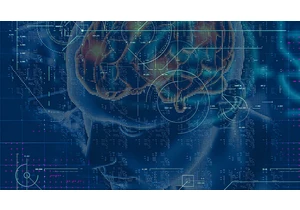IBM announced an important milestone in its years-long quest to build a quantum computer that matters. It’s built a new quantum processor called “Eagle” that breaks through the 100-qubit barrier with 127 qubits of processing power. Exceeding 100 qubits has been a tough problem for scientists: Quantum particles are by nature hard to control and given to errors. Earlier quantum machines have been used mainly by researchers to write and test quantum algorithms. Now, IBM says, researchers will be able to develop larger models that require more computing power than conventional supercomputers can offer. IBM calls this power superiority “quantum advantage.” “Quantum advantage is all about doing something cheaper or faster or more accurately than a classical computer,” IBM Quantum VP Jay Gambetta tells me. Among the areas where quantum computing could offer transformative advantages over conventional computers are real-time financial models and research into new chemical compounds. This week IBM is also previewing the design of the next piece of quantum hardware, called IBM Quantum System Two, that will contain its future quantum processors, along with the software, wiring, and refrigeration that enables their operation. After Eagle, IBM plans to develop a 433-qubit processor, then a 1,121-qubit processor. As the company continues its quantum research, it’s been sharing road maps about the progress it expects to make.
Connectez-vous pour ajouter un commentaire
Autres messages de ce groupe

If you’ve built an audience around documenting your 9-to-5 online, what happens after you hand in your notice?
That’s the conundrum facing Connor Hubbard, aka “hubs.life,” a creator who

OpenAI should continue to be

WhatsApp should prepare to leave the Russian market, a lawmaker who regulates the IT sector

This is an edition of Plugged In, a weekly newsletter by Fast Company global technology editor Harry McCracken. You can sign up to receive it each Friday and read all issues



Big changes are coming to the web in the days ahead. On July 25, the U.K.’s Online Safe
